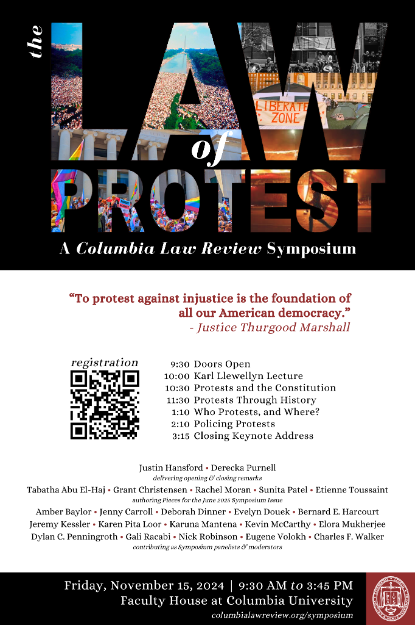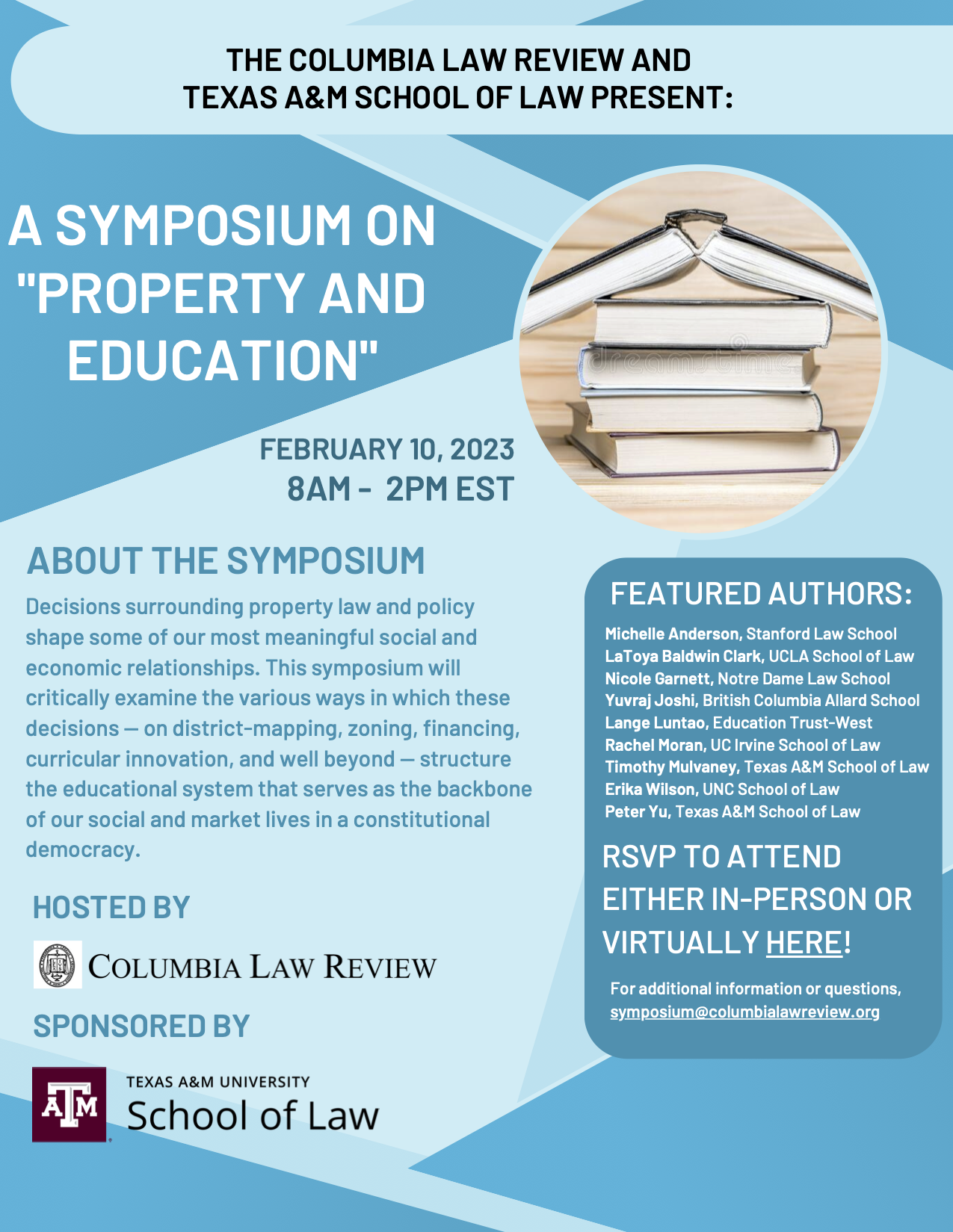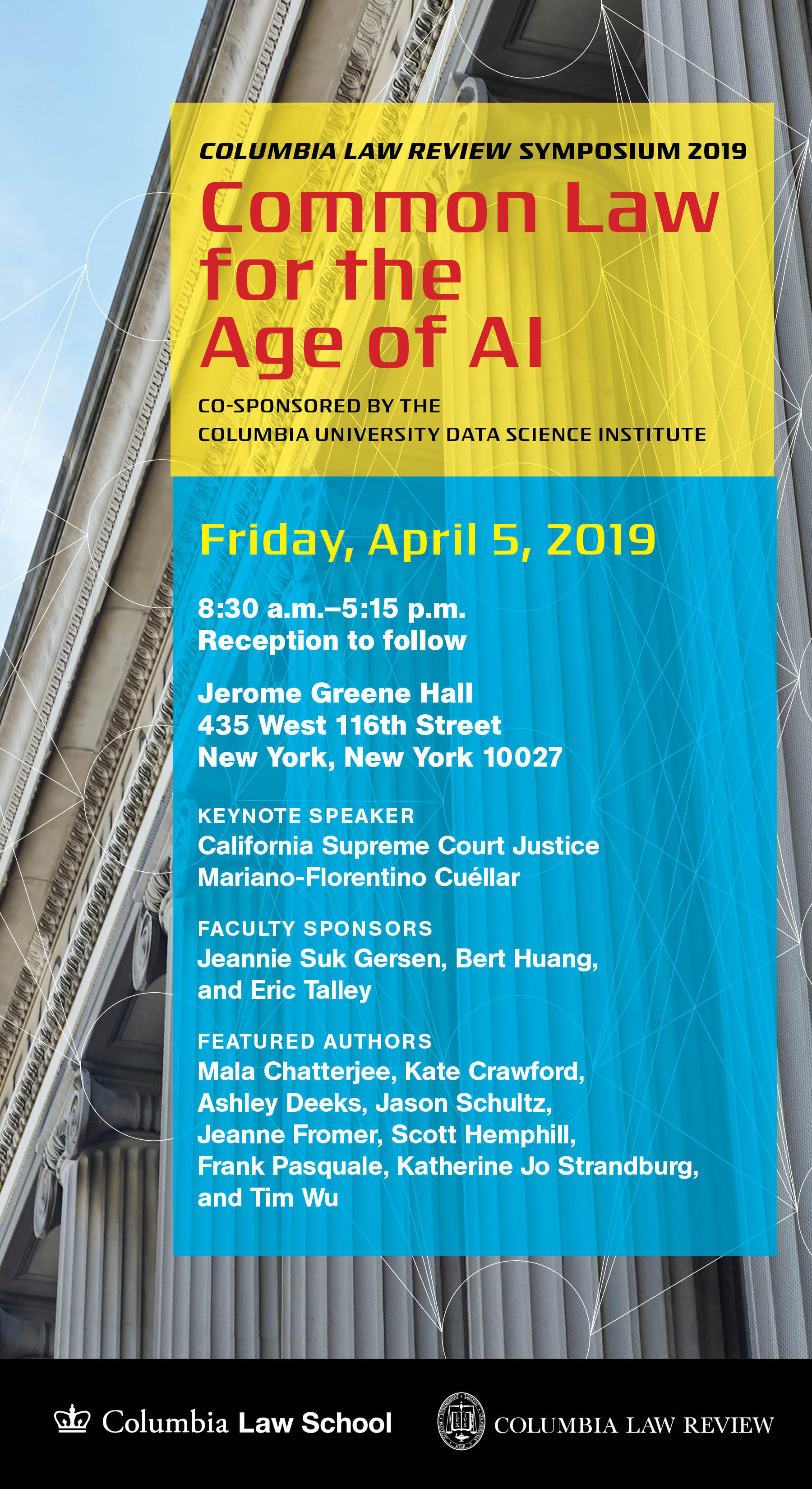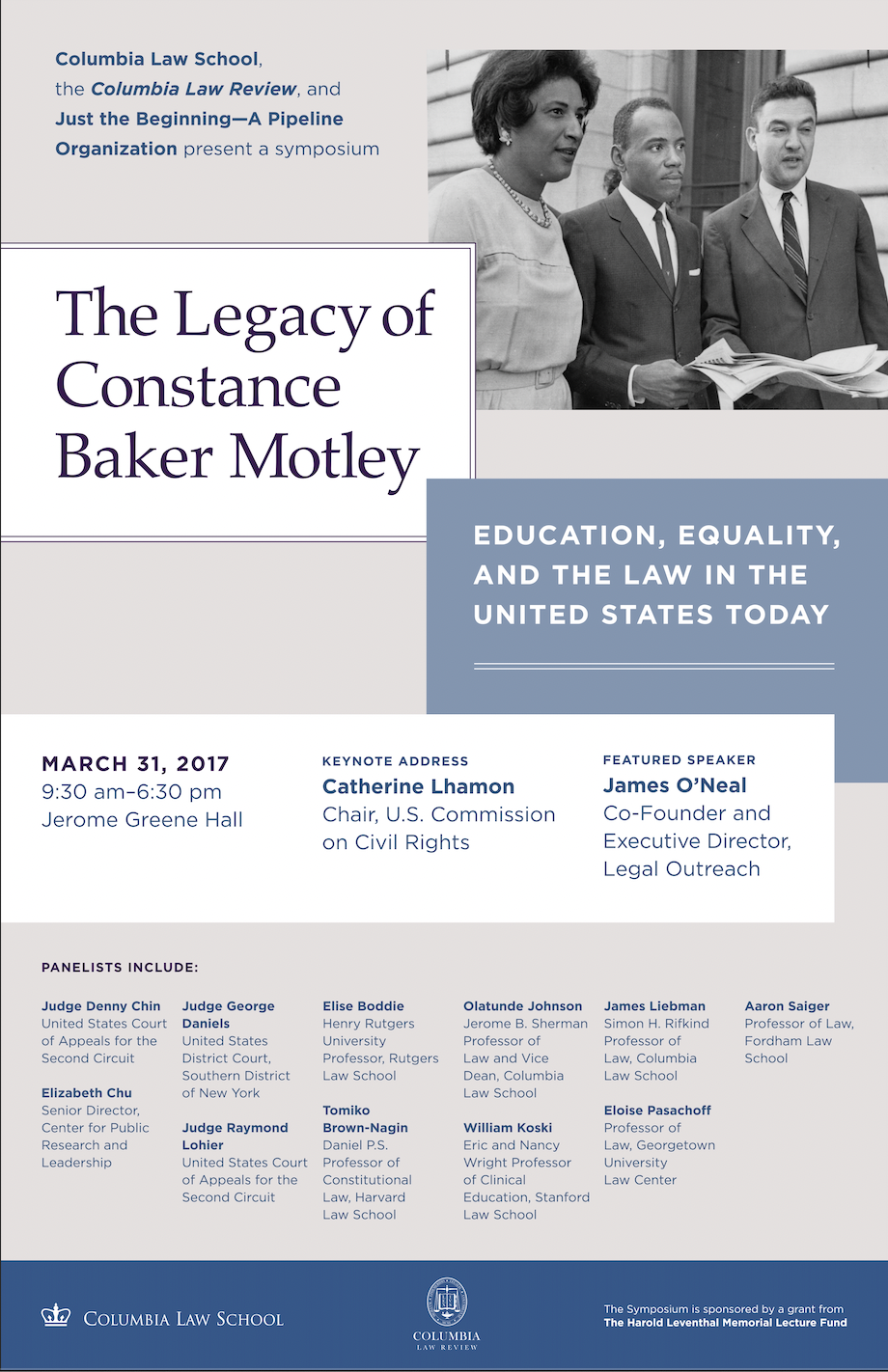Prior Columbia Law Review Symposia
2024. The Law of Protest. Vol. 125, No. 5 (forthcoming).

2023. A Symposium on “Property and Education.” Vol. 123, No. 5.

2021. The Other 98%: Racial, Gender, And Economic Injustice in State Civil Courts. Vol 122, No. 5.
2019. Common Law for the Age of AI. Vol. 119, No. 7.

2017. The Legacy of Constance Baker Motley: Education, Equality, and the Law in the United States Today. Vol. 117, No. 7.
